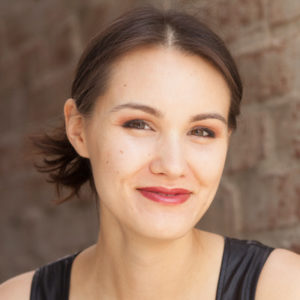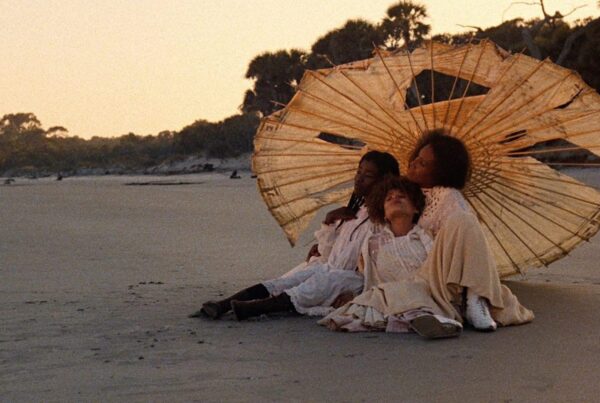
As a writer, crafting a fantasy world and dreaming up the creatures and characters within it is a creative adventure. There are no limits, other than the ones you create!
Fantasy is on the rise since GAME OF THRONES helped make the genre more mainstream, showing why these stories make for excellent television. They’re ripe for a large cast and exploration of interesting characters with complex relationships in worlds we can escape into, whether that realm is one of high-fantasy like THE WITCHER, sci-fi fantasy like DOCTOR WHO, or set in a world like our own with fantasy elements, like SUPERNATURAL.
The YA dramatic fantasy series MOTHERLAND: FORT SALEM, created by Eliot Laurence, is a great example of screenwriting and worldbuilding in the fantasy genre. Laurence has described it as “fantasy through a sci-fi lens.”
FORT SALEM is set against the backdrop of the United States of today but with an alternative history, if the Salem witch trials had persecuted real witches and the magical women struck a deal: in exchange for their freedom, they vowed to protect the nation using their supernatural powers. Modern society is matriarchal, and witches serve in the military using combat magic.
The show is currently in its second season. Here’s the trailer for the first season:
Let’s take a look at some do’s and don’ts of writing fantasy while using MOTHERLAND: FORT SALEM as a guide.
DO: Establish The History & Societal Structures Of The World
In order to play in the sandbox of the fantasy world you’re creating and to take your protagonist on a journey in it, you have to first know what that sandbox is and the rules around it.
Your fantasy world is like another character in your story. Consider world-building much like character development. Just like your protagonist has a backstory, important events that shaped them, as well as social and physical development unique to them, your world has a history, events that have defined and shaped it, as well as a societal structure and map or physical characteristics that are unique to it.
Check out the opening title sequence for FORT SALEM, which features the history and map of the world:
Eliot Laurence had the idea for the story a decade ago, first thinking it would be a series of novels as he created an entire history and lore for the world, but then changing direction to gear it for television after the world had been built. He told Fandom what it was like to craft the pilot from the massive amount of worldbuilding he’d done:
“It was about condensing all of that information and all of that lore…Series are tricky, and pilots are tricky because you want people to understand the world but you don’t want people to feel like they’re being lectured to or that they have to take notes.”
The lesson to take from Laurence’s experience is that, while novels and scripts are different forms of storytelling, the basics of fantasy world-building start from the same place. If you’re having trouble thinking of what you need to address in the development of the fantasy world of your script, consider these 10 questions to get you started.
DON’T: Be Rigid In The Development Of Your Fantasy Universe
Going along with the metaphor of world-building being like character development, just like how you discover in the writing process that your protagonist needs to be more fleshed out in certain areas or maybe even needs to change entirely, the same goes for your fantasy world. Allow the world to develop and take shape as you write and rewrite.
For example, Laurence shared with Den of Geek how the FORT SALEM world evolved:
“…he first started thinking about it as ‘a series like GOSSIP GIRL, except at a witch school, and it’s in New York and it’s real exclusive and real tough, but it’s edgy and chaotic,’ but eventually found the idea to be lackluster.
‘It’s not interesting,’ says Laurence. ‘So wait, what if one of the Salem witches was a witch, and cut a deal with the Massachusetts militia before we were even a country, and was like, look, ‘I will win your wars, but make a place for my people’? And that was the first big ‘What if,’ and I was so shook by it I had to sit down.’ The idea evolved organically and enthusiastically from there.”
Got a great fantasy TV pilot? Enter the WeScreenplay TV Pilot Screenwriting Competition!
DO: Include Diversity
A noticeable trend within fantasy film and television is a cast devoid of people of color and LGBTQ characters. As the genre is based in storytelling where all possibilities can be explored, it’s almost hypocritical to create a world where there is even less diversity than we have in reality.
One of the appeals of FORT SALEM is the diversity of its characters. Not only do the leads include LGBTQ and BIPOC women, but queer characters and POC populate the entire cast. The premise itself is based on a deep exploration of a diverse universe with a matriarchal society in America.
As an example of how this is explored, in this alternate version of the U.S., women are celebrated for their sexuality rather than shamed for it. The below (NSFW) clip shows the elder witches investigating a recent death using their magic, while the new recruits celebrate Beltane, a holiday where witches are encouraged to copulate as they please:
DO: Reveal The Rules Of The World Through The Protagonist’s Journey
This device has been used in many fantasy stories, including the HARRY POTTER films, Netflix’s SWEET TOOTH series, and the fantasy series THE MAGICIANS. As the protagonist discovers a new world and how it works, we discover it along with them. A natural introduction to the rules of the world takes place.
The new recruits in FORT SALEM learn the rules of how basic training, war college, and their powers work along with the audience. Below is a scene from the pilot, showing the three leads learning how to harness their mystical abilities in military training, which displays the magic of the world.
Notice that, in this scene, as they learn combat magic and how the witch army works together, we learn with them:
DON’T: Develop The World More Than Your Characters
Avoid becoming so engrossed in world-building that you get lacks in character development. Remember, the core of every great screenplay is strong character development. You can have an epic, intricate fantasy world, but without characters that we’re invested in, the audience won’t want to watch.
This was just one of the issues that critics pointed out with the fantasy series EMERALD CITY, which only ran for one season.
In FORT SALEM, the series focuses on three cadets, Raelle, Tally, and Abigail, as they answer the call to serve in the military and begin basic training. Each character has her own unique backstory, pre-existing life, and goals. Their distinct personalities and intentions inform the story and the world.
In essence, this means to write from the inside out rather than outside in. It’s the protagonist’s journey that will drive the story forward and pull the audience in – even when it takes place in a fantastical setting.
—
If fantasy is your passion and your calling, now is the time to get your script written and polished. Audiences have discovered the enchantment of fantasy stories and are hungry for more.
 Joanna Ke is an award-winning, half Taiwanese actor, writer, producer, and trained sword fighter. Her foundation as a creative producer and screenwriter is built on nearly a decade of experience as a professional script reader in development and acquisitions. She studied screenwriting with the late, great Syd Field, and as an actor, has had the honor of working with director Cameron Crowe. Her films have won BEST ACTION and BEST FANTASY awards, and her acting has won BEST PERFORMANCE and BEST VILLAIN accolades.
Joanna Ke is an award-winning, half Taiwanese actor, writer, producer, and trained sword fighter. Her foundation as a creative producer and screenwriter is built on nearly a decade of experience as a professional script reader in development and acquisitions. She studied screenwriting with the late, great Syd Field, and as an actor, has had the honor of working with director Cameron Crowe. Her films have won BEST ACTION and BEST FANTASY awards, and her acting has won BEST PERFORMANCE and BEST VILLAIN accolades.
Wielding her broadsword is a favorite, both on and off camera.

















